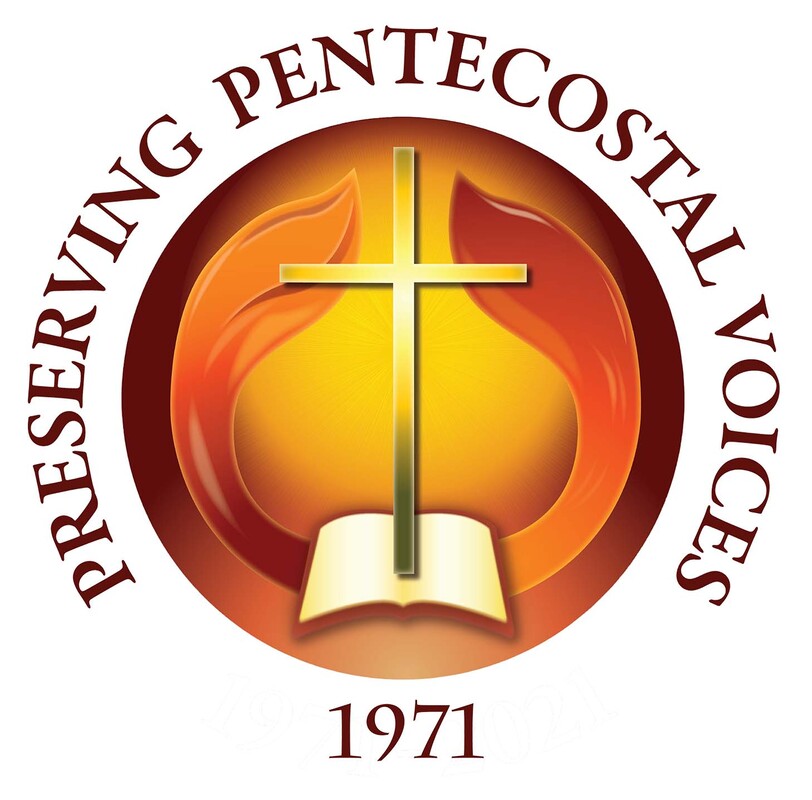|
Earlier this month, the Dixon Pentecostal Research Center honored Dr. John D. Nichols and Dr. John M. Gregory with the Spirit of Azusa Award. The Research Center presented the awards in conjunction with its fifteenth annual Azusa Lecture. For the first time, the Leadership and Communications Center of the Church of God International Offices in Cleveland, Tennessee, hosted the live-streamed event. Both the presentation of the Spirit of Azusa Awards and the Azusa Lecture highlighted benevolence ministries in recognition of the centennial of the Church of God’s oldest benevolence ministry—the Smoky Mountain Children’s Home. In honoring Nichols, Dixon Pentecostal Research Center Director David Roebuck noted that while serving on the International Executive Committee Nichols was the liaison to the Church of God Department of Benevolence. Compassion for benevolence gripped Nichols heart, and when tenure limitations necessitated a new place of ministry, he asked to serve as director of the Department of Benevolence. During his twelve-years of service, Nichols transformed benevolence ministries in the Church of God. Central to the changes was the creation of the Church of God Division of Care. During his directorship, Nichols was especially fruitful at creating partnerships with others who shared his passion for caring for the “least of these.” Among those was a partnership with Entrepreneur John Gregory and Church of God World Missions Director Gene D. Rice that resulting in a $5 million General Assembly offering to establish and support orphanages around the world. In 2006, Nichols became executive director of the Lazarus Foundation and worked alongside Gregory to establish and finance multiple benevolence projects both in and outside the Church of God. In honoring Dr. John M. Gregory, Dr. Roebuck noted Gregory’s extraordinary career as a pioneering leader in the pharmaceutical industry. Currently the chairman and CEO of Gregory Pharmaceutical Holdings, Inc., Gregory began his career in Bastian, Virginia, where he opened the town’s first retail pharmacy. He later co-founded General Injectables and Vaccines, which he turned into a successful enterprise with annual revenues of more than $150 million. In 1993, Gregory founded King Pharmaceuticals in Bristol, Tennessee, which grew into a Standard & Poor’s 500 Index Company with revenues exceeding $1 billion. Ten years ago, the Gregory family sold King Pharmaceuticals to Pfizer Pharmaceuticals for approximately $4 billion. Roebuck cited Gregory’s deep commitment to benevolence ministries. In 1992, he established the Lazarus Foundation, which for almost 30 years supported evangelism ministries, jail and prison ministries, educational ministries, and childcare ministries. The Lazarus Foundation undergirded many Church of God care ministries. Today, Gregory is chairman emeritus of Kingsway Charities, an international ministry that provides pharmaceuticals and medical supplies to developing world countries. He also serves as president of Serving Orphans Worldwide, an international charity supporting orphanages and children’s homes in 27 countries on five continents. Their partnership includes training opportunities to raise standards of care and pursue self-sustainability in order to provide a future that is more than mere survival. As part of the award presentation, General Overseer Timothy M. Hill spoke on behalf of the Church of God. Hill noted that the word “benevolence” in the Church of God is synonymous with John Nichols and John Gregory. He expressed appreciation to Gregory for being a friend and partner with Church of God ministries around the world and characterized Gregory as “a man sold out to saving lives, to saving souls, and to saving people.” Recognizing the late John Nichols, Hill recalled his influence as a preacher during Hill’s early ministry and the passion with which Nichols promoted benevolence ministries. In thanking the Church of God for the honor, Gregory acknowledged that God’s blessings on his businesses allowed him to water ministries that others had planted. He thanked his wife, Joan Patricia Gregory, who has been an essential part of his life and business. He then recognized several Church of God leaders for their partnership, encouragement, and commitment to benevolence ministries. Among those were Gene Rice, Donnie Smith, Raymond Culpepper, Richard Baker, Ken Anderson, John Nichols, Paul Conn, and Bill Leonard. The Dixon Pentecostal Research Center has presented the Spirit of Azusa Award each year since the inauguration of their annual Azusa Lecture in order to honor a person whose lifetime of ministry reflects the Pentecostal Movement’s spirit of renewal. The Azusa Lecture and Spirit of Azusa Award celebrate the rich heritage of this global renewal movement. Following the Spirit of Azusa Award presentation, Dr. Roebuck presented the Azusa Lecture entitled “Unto the Least of These: Roots and Fruit of Church of God Benevolence Ministry.” Roebuck’s lecture revealed the early roots of Church of God benevolence ministries beginning with A. J. Tomlinson’s Samson’s Foxes ministry in Culberson, North Carolina, and concluding with the development of the Smoky Mountain Children’s Home. The Smoky Mountain Children’s Home opened its doors in Cleveland, Tennessee, on December 17, 1920, as the Church of God Orphanage. The orphanage began with four children and a century later serves more than 400 children and youth through it ministries in Sevierville, Tennessee.
In introducing Roebuck, Assistant General Overseer J. David Stephens noted Roebuck’s more than twenty years as director of the Dixon Pentecostal Research Center as well as his service as Church of God historian since 2004. Roebuck has written numerous articles on the holiness and Pentecostal movements and is assistant professor of the history of Christianity at Lee University. Church of God International Executive Committee members Raymond F. Culpepper, David Ramirez, and John D. Childers also participated in the Azusa Lecture and Spirit of Azusa Award presentation. The program included musical performances by Lee University’s Evangelistic Singers, Ladies of Lee, and the sanctuary choir of the First Assembly of God in Forty Myers, Florida. The Dixon Pentecostal launched the annual lecture and award in 2006 on the centennial of the renowned Azusa Street revival in Lost Angeles. The revival began when African-American Pastor William J. Seymour preached a message of Spirit baptism following salvation and sanctification. What started as a home prayer meeting attracted throngs of seekers as hundreds traveled to the Azusa Street Mission, received a personal baptism of the Holy Spirit, and took that message to their homes, churches, and communities. The Pentecostal Movement quickly became a great missionary movement, and the twentieth century came to be called the “Century of the Holy Spirit.” Church of God Historian Charles W. Conn noted that the Los Angeles revival, which lasted from 1906 to 1909, “is universally regarded as the beginning of the modern Pentecostal Movement. The Spirit of Azusa Award honoring Nichols was the second time the Dixon Pentecostal Research Center has presented the award posthumously. Dr. Robert E. Fisher received the first award in 2006 for his leadership in envisioning and planning the centennial celebration of the renowned revival. As director of the Center for Spiritual Renewal, Fisher connected global Pentecostal leaders to develop a centennial celebration, but died unexpectedly prior to the event. Following his death, more than 40,000 people from around the world gathered in Los Angeles to commemorate what God did in the 1906 revival. Founded by Charles W. Conn on the campus of Lee University, the Dixon Pentecostal Research Center is one of the world’s significant collections of Pentecostal resources as well as the archives of the Church of God. In addition to students at Lee University and the Pentecostal Theological Seminary, numerous scholars use the center’s holdings related to the Pentecostal-Charismatic Movement. Dr. Roebuck serves as director, and the Reverend David “Gene” Mills, Jr. is archivist.
0 Comments
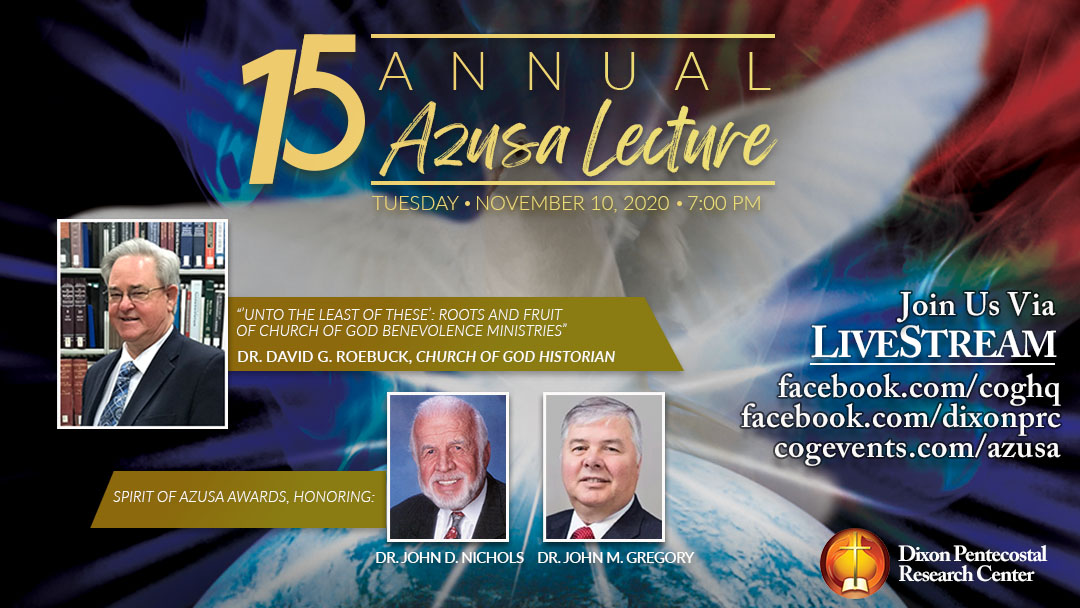 Dr. David G. Roebuck will present the Fifteenth Annual Azusa Lecture on Tuesday, November 10, at 7:00 p.m. Rather than a public gathering, the lecture will be livestreamed from the Church of God International Offices at facebook.com/coghq, facebook.com/dixonprc, and www.cogevents.com/azusa. Roebuck will speak on “Unto the Least of These: Roots and Fruit of Church of God Benevolence Ministries.” His lecture is part of a series of events celebrating the centennial of the Smoky Mountain Children’s Home. Now located in Sevierville, Tennessee, the Smoky Mountain Children’s Home began as the Church of God Orphanage in Cleveland, Tennessee, in December 1920. Along with Roebuck’s presentation, the Dixon Pentecostal Research Center (DPRC) will honor Dr. John M. Gregory and posthumously honor Dr. John D. Nichols with Spirit of Azusa Awards for their leadership in benevolence ministries. Roebuck has served as director of the DPRC since 1997. He is Assistant Professor of the History of Christianity at Lee University and an adjunct teacher at the Pentecostal Theological Seminary. He has been a member of the Church of God Historical Commission since 1996, and was appointed church historian in 2004. Prior to his appointment as director of the DPRC, he served as an instructor and reference assistant for William G. Squires Library. He is an ordained bishop in the Church of God. Roebuck earned a B.A. from West Coast Christian College and a Master of Divinity from the Pentecostal Theological Seminary along with a M.A. and Ph.D. from Vanderbilt University. His research interests include the holiness and Pentecostal movements with attention to minority voices. He is a frequent contributor to books and periodicals related to the Pentecostal Movement and edits the columns “Church of God Chronicles” and “Where Are They Now” for the Church of God Evangel. Roebuck is an active participant in several professional organizations including the Society of American Archivists, Society of Tennessee Archivists, and Tennessee Theological Library Association, which he served as secretary, vice-president, and president, as well as the Society for Pentecostal Studies, which he served as executive director from 2003 to 2011. He is also board chair of the Consortium of Pentecostal Archives. Along with the Azusa Lecture, the Dixon Pentecostal Research Center will present the Spirit of Azusa Award to Dr. John M. Gregory and John D. Nichols. Serving as chairman and CEO for Gregory Pharmaceutical Holdings, Inc., Gregory is a pioneer in specialty pharmaceuticals and deeply committed to benevolence ministries. He is chairman emeritus of Kingsway Charities, an international ministry that provides pharmaceuticals and medical supplies to third world countries. He also serves as president of Serving Orphans Worldwide, an international charity that provides financial support to orphanages and orphans in 26 countries in five continents. Trained at the University of Maryland as a pharmacist, Gregory began his career in Bastian, Virginia, where he opened the town’s first retail pharmacy. He later expanded the business by co-founding General Injectables and Vaccines (GIV), which he turned into a successful enterprise with annual revenues of more than $150 million per year. In 1993, Gregory and his family founded King Pharmaceuticals in Bristol, Tennessee, which was transformed into a Standard & Poor’s 500 Index Company with revenues exceeding $1 billion. In 2010, King Pharmaceuticals was sold to Pfizer Pharmaceuticals, the largest pharmaceutical company in the United States, for approximately $4 billion. Gregory received the 2002 Ernst & Young Entrepreneur of the Year award (health sciences category) and the 2008 American Free Enterprise Medal from Palm Beach Atlantic University, Palm Beach, Florida. John D. Nichols was an ordained bishop in the Church of God whose life of ministry spanned nearly six decades. He pastored congregations in Visalia, San Bernardino, and Baldwin Park, California, as well as South Park in Alabama. Administrative appointments included state overseer of Oregon, North and South Dakota, Illinois, Tennessee, and Florida. His elected positions included assistant director and director of the Department of Evangelism and Home Missions along with eight years on the Church of God International Executive Committee as general secretary-treasurer, third assistant general overseer, and second assistant general overseer. Upon leaving the International Executive Committee, Nichols accepted the directorship of the Department of Benevolence, which at that time consisted primarily of the oversight of three children’s homes in the United States. Under his twelve-year tenure, he expanded the benevolence ministries of the Church of God. In 2000, the Church of God Division of Care was begun, which today includes the Center for Ministerial Care/Spirit Care, Chaplains Commission, Iris B. Vest SpiritCare Center, Ministry to Israel, Operation Compassion, and Smoky Mountain Children’s Home. Along with many orphanages outside the United States, other Church of God ministries to children include Church of God Children’s Home of North Carolina, Church of God Home for Children (South Carolina), Heart of Florida Youth Ranch, and New River Ranch (West Virginia). In 2006, Nichols became executive director of the Lazarus Foundation and worked with John Gregory to establish and finance multiple benevolent projects both in and outside the Church of God. Nichols died in 2009. The purpose of the Azusa Lecture is to celebrate the rich heritage of the Pentecostal Movement. The Dixon Pentecostal Research Center launched the annual lecture in 2006 on the occasion of the centennial of the revival at the Azusa Street Mission in Los Angeles. Church of God Historian Charles W. Conn noted that the Los Angeles revival, which lasted from 1906 to 1909, “is universally regarded as the beginning of the modern Pentecostal Movement.” The Los Angeles revival began when African-American Pastor William J. Seymour preached a message of Spirit baptism following salvation and sanctification. What started as a home prayer meeting attracted throngs of seekers and was moved to an abandoned church building at 312 Azusa Street. Hundreds traveled to the Azusa Street Mission, received a personal baptism of the Holy Spirit, and took that message to their homes, churches, and communities. The Pentecostal Movement quickly became a great missionary movement, and the twentieth century came to be called the “Century of the Holy Spirit.” Founded by Charles W. Conn on the campus of Lee University, the Dixon Pentecostal Research Center is one of the world’s significant collections of Pentecostal resources as well as the archives of the Church of God. In addition to students at Lee University and the Pentecostal Theological Seminary, numerous scholars utilize the center’s holdings related to the Pentecostal-Charismatic Movement. Along with Director Roebuck, Rev. D. E. “Gene” Mills, Jr. serves as an archivist. |
Archives
November 2023
|

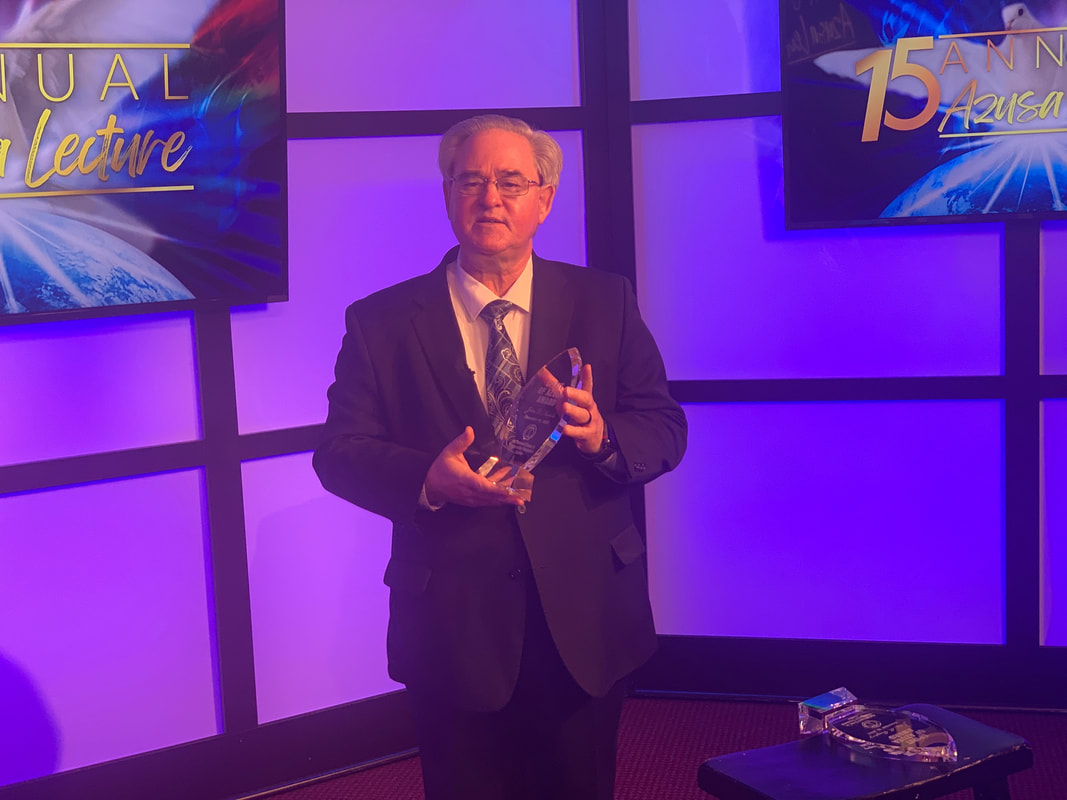
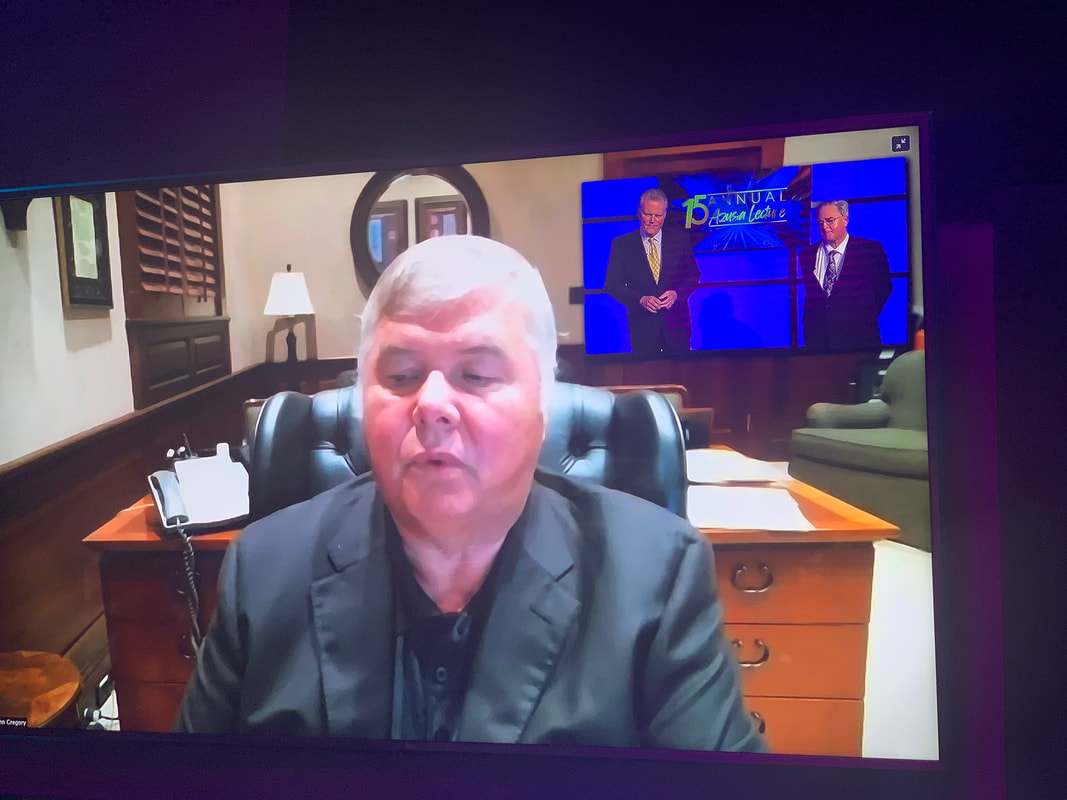
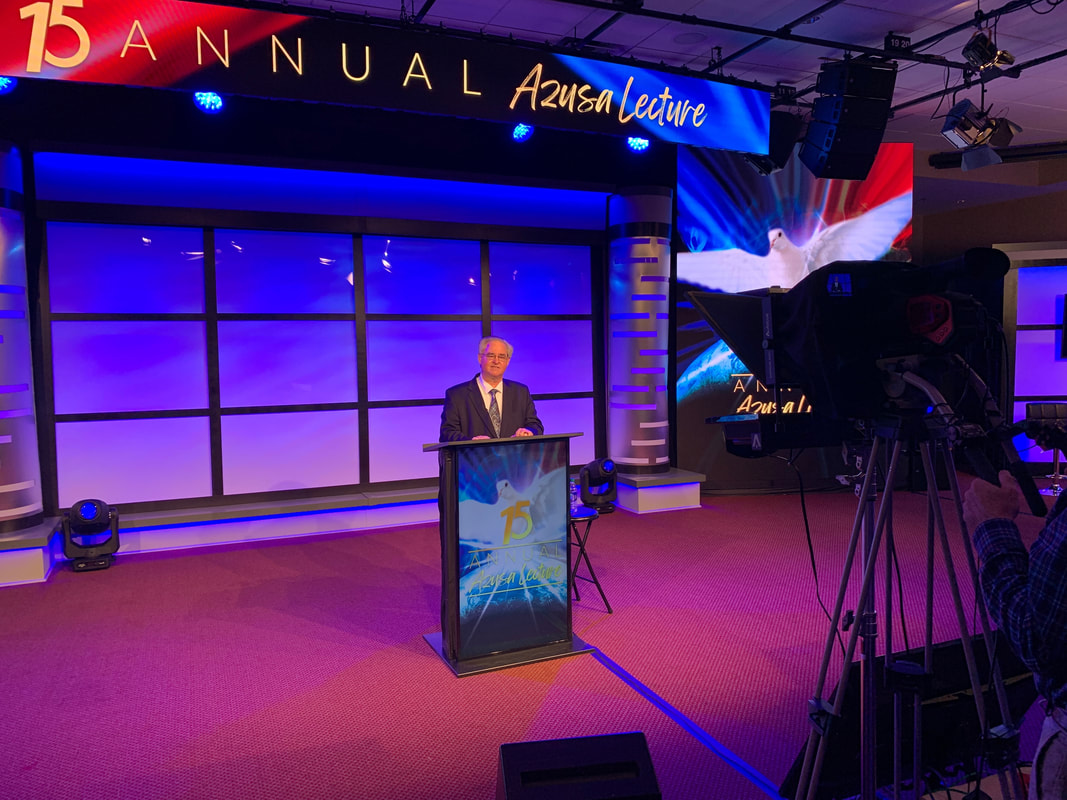
 RSS Feed
RSS Feed
